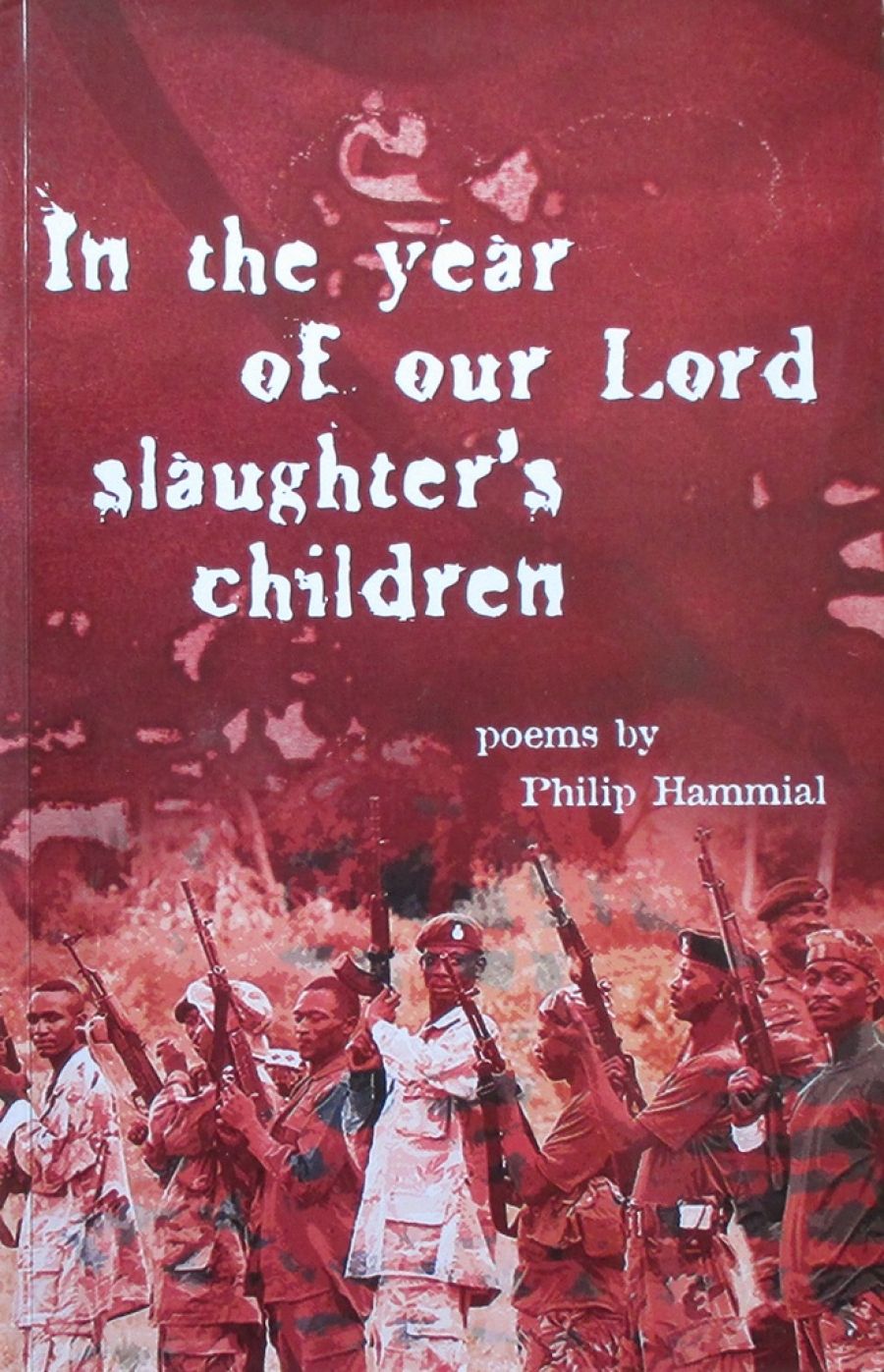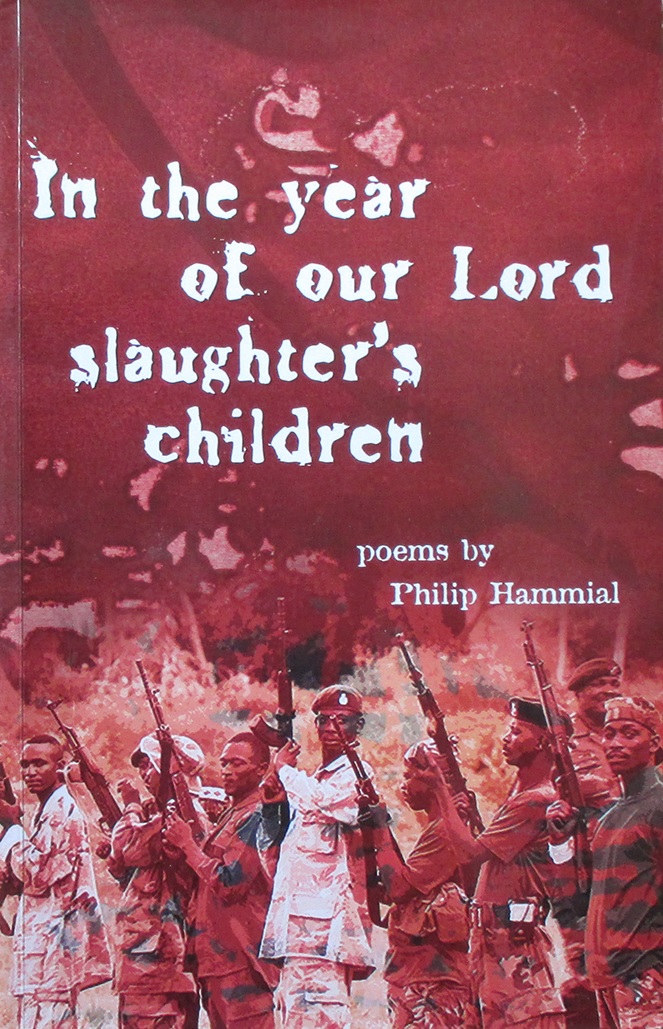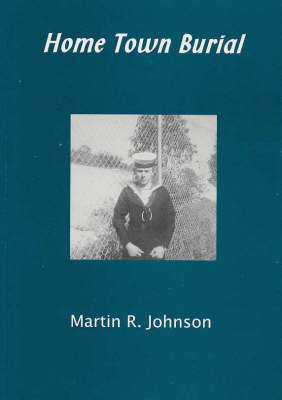
- Free Article: No
- Contents Category: Poetry
- Review Article: Yes
- Article Title: Consolations of the Heart
- Online Only: No
- Custom Highlight Text:
Here are three volumes that offer differing responses to a world characterised by injustice, brutality and personal hardship. Far and away the most distinctive (and demanding) of these is Philip Hammial’s sixteenth collection, In the Year of Our Lord Slaughter’s Children.
- Book 1 Title: In the Year of Our Lord Slaughter’s Children
- Book 1 Biblio: Island Press, $16.95 pb, 80 pp
- Book 1 Cover Small (400 x 600):

- Book 1 Cover (800 x 1200):

- Book 2 Title: Home Town Burial
- Book 2 Biblio: Cornford Press, $19 pb, 74 pp
- Book 2 Cover Small (400 x 600):

- Book 2 Cover (800 x 1200):

- Book 3 Title: Loneliness
- Book 3 Biblio: Five Island Press, $18.95 pb, 68 pp
The mood of this latest book is rather less playful; for the most part, the poems are not strictly about anything. Instead, by means of breathless, almost improvisatorial associations, Hammial attempts to evoke in the reader a feeling for the ‘sordid realities’ of everyday life, along with those of war, political manoeuvring and sexual exploitation. A number of the poems contain allusions to conditions in Africa, a country with which the poet is obviously well acquainted. Indeed, the book’s cover photograph shows a group of under-age African soldiers brandishing heavy guns, while an accompanying epigraph describes the inhuman treatment such boys may be likely to experience.
Alarmingly inhospitable at times, Hammial’s poetry must surely test the patience of even his most ardent admirers. The first third or so of ‘Vox Populi’ for instance:
His voice any other way
than it is – here
with the ready: a graveyard
for gramophones. Is this
or is this not loyalty
to you, to me, to the drowsy multitude
who inhabit the kiss-&-tell suicides that pass
for honour in this pugnacious principality?
Elsewhere, in ‘Past Glories’, Hammial appears to take pleasure in producing patent nonsense:
Send the ones with washing agendas
to the end of the queue with the cabaret
vocalists – past glories
up for grabs like a sexy start
to something you’d see if you slept
in a ditch …
Writing of this sort can soon become tedious, so it is a relief to come upon relatively straightforward, well-made poems such as ‘Bicycle’, ‘Dead Poets’, Nairobi’ and ‘Knight’, the last of which anticipates the accusation of meaninglessness.
Still more impressive are the poems in which Hammial works at heightening conflict between narrative drive and verbal play, a technique that he develops to particularly good effect in ‘At the Movies’. The poem compares the viewing of a film to a lift’s descent ‘through time’, creating some sense of what it might be like to travel along the byways of a consciousness. For this, and works of similar sophistication, Hammial deserves to be more widely recognised.
In putting together Home Town Burial, Martin R. Johnson appears to have sought to make sense of a troubled past. Born into a poor and unstable family environment, Johnson has written poems that generally trace the worst of his experiences from boyhood to middle age. Filling out the picture, he includes background material and a few photographs.
This is a life that makes for pretty grim reading, though, as the cover notes promise, it is not without glimpses of optimism. Early on, Johnson remembers his father’s alcohol-induced violence, his mother’s canings and the sudden recognition of his family’s deprived circumstances: ‘holes in our clothes, / and dirt in our skins, our wretchedness hit me /hard as a punt kick on the chest.’ He goes on to describe the harsh realities of life as a raw navy recruit, and, among other things, the guilt that results from his girlfriend’s death in a car accident:
hear her voice still, pleading for forgiveness,
but the shriek of tearing/skidding metal,
sight of those crazy upturned spinning wheels,
feel of my helpless and broken body
in the shattered glass, sound of running feet
coming nearer and nearer over the blue/black stones,
faces bending over me crying: ‘She’s dead. Dead. Dead.’
forever makes mute my tongue.
Though clearly powerful, such an account relies too heavily on its horrific content. (Incidentally, is it really hair-splitting to object to that last line as manifestly untrue?)
Finally, in ‘For Cathy’, Johnson emerges from years of torment to put the past behind him. Lovingly observing his wife in the garden, he closes the volume with a relieved and pregnant allusion to the ‘ash in the flames of my heart’.
The consolations of the heart loom large in the poetry of Maurice Strandgard. From ‘The night has come’, for example: ‘However much you may be afraid / Of the warm / Scarlet blood of love / You must receive it …Or darkness will remain.’ A rather earnest humanitarian, 75-year-old Strandgard has assembled, in this his first collection, poems that reveal a deep sympathy for the marginalised and dispossessed, as well as for people affected by war, slavery and torture. His identification with John Shaw Neilson, about whom he writes at some length, comes as little surprise. Moreover, it is safe to assume that the source of Strandgard’s social awareness may be traced to what the biographical information refers to, indiscreetly, as ‘an unfortunate childhood’. The collection contains a passing reference to ‘my ill-treated mother’, while, very often, men are portrayed as destructive, women as caring.
The most outwardly ‘poetic’ of these three poets, Strandgard is particularly good when he turns to satire or whimsical invention. One poem imagines the prime minister evaluating the merits of a United Nations protocol for ‘The Elimination of Discrimination Against Soft Furnishings’ (‘He had heard … that floor coverings / were dragged from their looms / and beaten’); in another, the speaker decides ‘to give up being / human’, but is unable to find a plastic surgeon who might perform the job completely.
Possibly the best of Loneliness is a short, sentence-long poem entitled, simply, ‘Poet’. Here, removing himself from the scene, Strandgard achieves a weightlessness and purity that much of the book lacks:
Her long, nervous fingers
cross
and recross
before her mouth as she speaks
like
the strung fence
of an abandoned farm
stirred by a wind
from beyond
the present horizon …


Comments powered by CComment